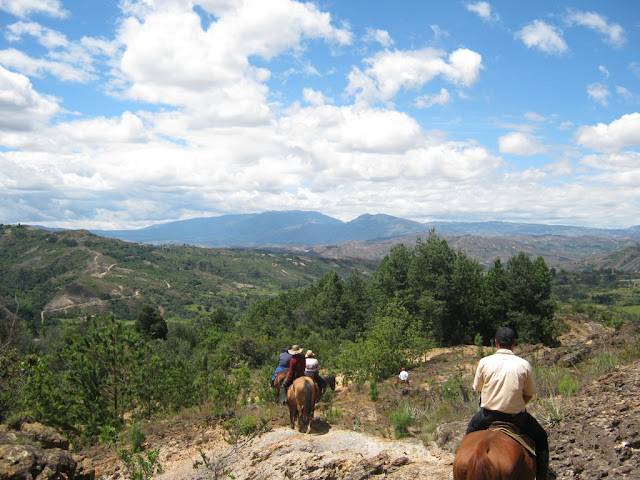From Rizal, Philippines, Elizabeth Castillo is an international
poetess. Her first book of poetry, Season of Emotions, was released
in January 2013. Her poetry has been featured in over 20 anthologies,
and counting...
Welcome Elizabeth!
What is
your view of current world events?
 The world nowadays is plagued with various controversies involving
religion and politics mostly; conflicts between nations, territorial disputes
and other major topics. Even the latest resignation of the Pope as leader of
the Catholic Church was attacked with so much controversies and hearsays. I
read world events online once in awhile. I am concerned for what is happening
around especially news about the environment, violence on women and children
and abuse of human rights. Most of them
are alarming; some do come and go and are replaced by newer hot issues or those
that are trending. With the advances in technology, faster transmission of
communication, one wouldn’t be left behind of what’s happening around him
unlike before.
The world nowadays is plagued with various controversies involving
religion and politics mostly; conflicts between nations, territorial disputes
and other major topics. Even the latest resignation of the Pope as leader of
the Catholic Church was attacked with so much controversies and hearsays. I
read world events online once in awhile. I am concerned for what is happening
around especially news about the environment, violence on women and children
and abuse of human rights. Most of them
are alarming; some do come and go and are replaced by newer hot issues or those
that are trending. With the advances in technology, faster transmission of
communication, one wouldn’t be left behind of what’s happening around him
unlike before.
What is
your life’s mission?
My life’s mission as a writer and poet is to touch lives through pen
pushing. I want to leave marks on other people’s lives in whatever way I may
have touched them through my written words. God gave me this gift of words and
I believe I have the obligation to share it and not just keep to myself.
When
did you realize you wanted to become a writer/poet?
At a very young age, my preteen years, I exhibited writing
inclinations with dozens of poems/essays and just kept them in torn and worn-out
pages of my notebooks. I have always loved writing for it is my passion.
Can you
remember the first poem you ever wrote?
Honestly, I cannot vividly remember the very first poem I composed.
Most of them though were love poems; either sad love poems of separation or
happy love poems of being in the throes of love.
What is
your primary genre?
I have always written poetry, some essays and short stories. I also do
blogging. I really wanted to become a flexible writer for I have experienced
news writing already, feature and creative writing. What I haven’t done yet is
to write a novel which I may eventually venture in the near future. Could be a
dark or horror novel like my idol Stephen King does.
Where
do you currently work?
I am currently working as a professional writer and also as an online
English instructor for Koreans. I am also a contributing editor for an
international online magazine, Inner
Child The Magazine and co-authoring various international anthologies.
As a
contributing editor, what do you look for?
As a contributing editor for Inner
Child the Magazine’s section All About
the Love, I usually write topics about life, love and relationships, so
mainly, it’s all about the love.
Name a
favorite poem or two and a few of your favorite poets…
Elizabeth Barrett Browning’s How
Do I Love Thee? Let Me Count The Ways is my all-time favorite. I also adore
Emily Dickinson’s A Charm Invests A Face. I love the works of Elizabeth Barrett Browning, Emily Dickinson and
Rumi and largely influenced by their masterpieces, though I have my own poetic
style.
Is it
important to you if your poems get published or not?
I have always dreamed of publishing my own books and after winning an
international competition and having a free publication of my first
international poetry book which is Seasons
of Emotions, I knew my dream finally came true. Writing is my passion and
my gift to the world so I must share it. After publishing my first poetry book,
I will also be releasing my second book, but this time it would be a collection
of my well-loved blogs, essays, prose and poetry, short stories and quotes
within this year with another publishing company.
What
does poetry really mean to you?
Poetry lets me pour out my various emotions even the suppresses one we
didn’t know exist inside of us ‘til the
moment you start jotting down what you’re feeling. It’s more than an escape
into the unknown, a refuge for your creativity and sometimes wild imagination
not all ordinary ungifted people like us understand.
Define
perfect poetry…
Perfect poetry for me is one that wakes up the feelings and senses of
your readers, carries them to a place you have made up in your imagination as
written on your pieces or one that touches the readers in one way or the
other. I consider myself as a modernist
writer/poet for I like my readers to experience surreal feelings once they get
to read my work, much like James Joyce style - stream of consciousness.
Follow Elizabeth...
Goodreads
http://www.goodreads.com/author/show/6869749.Elizabeth_E_Castillo?auto_login_attempted=true
Seasons
of Emotions http://www.lulu.com/shop/elizabeth-castillo/seasons-of-emotions/paperback/product-20615522.html
Twitter https://twitter.com/snowy19ph



.jpg)


.jpg)











.jpg)


.jpg)

.jpg)

.jpg)
.jpg)

.png)

.png)
.png)